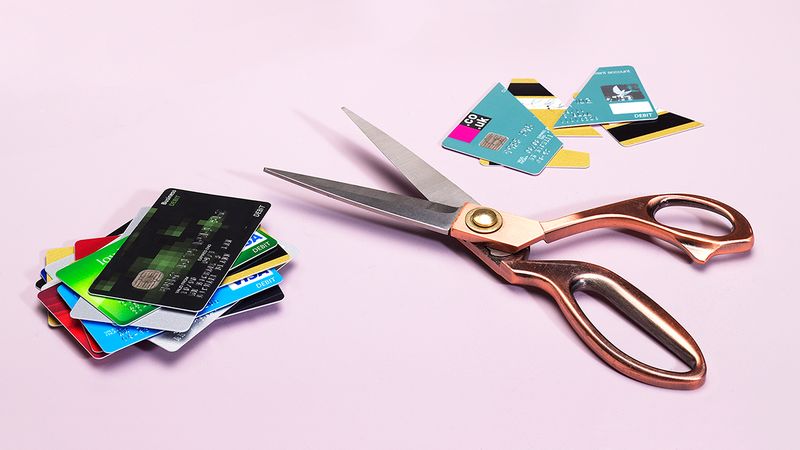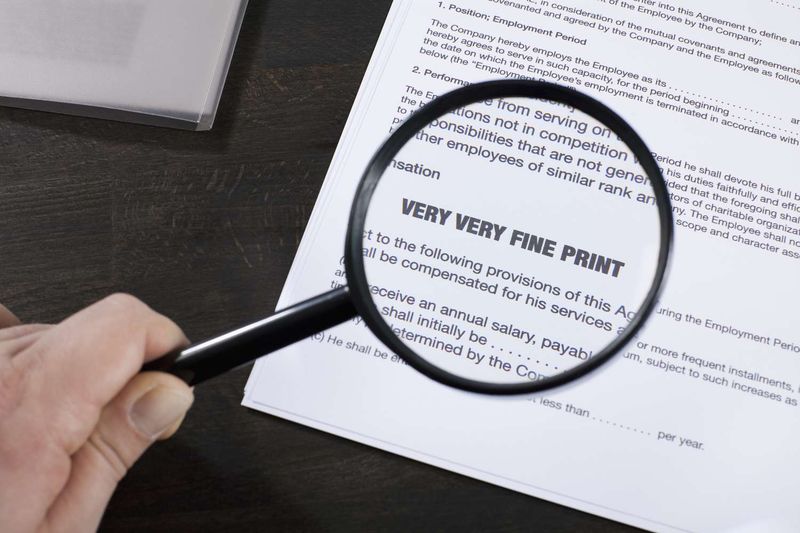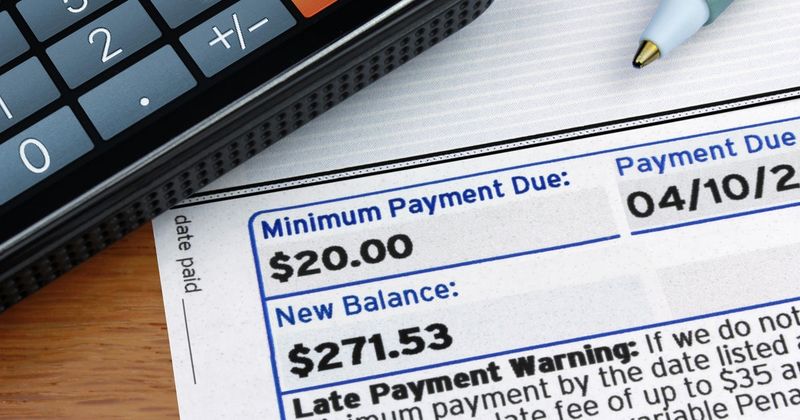Experts Warn These 11 Credit Card Mistakes Could Cost You Big

Credit cards may flash convenience and rewards at every turn, but beneath the surface lies a financial trap that can quietly unravel your stability. What starts as a quick swipe for coffee or a splurge on shoes can spiral into years of compounding debt, anxiety, and regret. While the glossy perks might tempt you, the long-term costs often outweigh the fleeting benefits. From sky-high interest rates to relationship strain and even bankruptcy, credit misuse comes with a steep price. Before your next impulse buy, discover 11 powerful reasons to rethink credit—and why cutting the cord might just save your life.
1. Debt Snowballs Faster Than You Can Shovel

That innocent-looking credit card is actually a debt-making machine. You might start with a small balance of a few hundred dollars, thinking you’ll pay it off next month. Suddenly, six months pass and your balance has doubled.
The average household carrying credit card debt owes over $7,000! What’s worse, this debt multiplies silently in the background of your life. Many people don’t realize they’re in trouble until they’re struggling to make even minimum payments.
Breaking free becomes nearly impossible as interest compounds daily, turning small purchases into long-term financial burdens.
2. Interest Rates That Would Make Loan Sharks Blush

Credit card companies aren’t in business to help you – they’re after profits. The average credit card interest rate hovers around 20%, with some cards charging nearly 30%! This means that $1,000 sofa could eventually cost you $1,600 or more.
Unlike mortgage or auto loans with reasonable rates, credit cards charge astronomical interest that compounds daily. A single missed payment can trigger penalty rates that make your situation even worse.
Remember that $40 dinner date? If you pay only minimums, you might still be paying for it years later – and it could end up costing over $100.
3. Hidden Fees Lurking Around Every Corner

Credit card companies are masters of the fine print. That amazing zero-percent offer? It expires after a few months, then jumps to 24%. The rewards program? Often requires spending thousands to earn anything worthwhile.
Annual fees, balance transfer fees, cash advance fees, foreign transaction fees, and late payment penalties can add hundreds to your balance without you buying a single thing. Many cards even charge you for paying by phone or requesting a paper statement!
These sneaky charges are designed to extract money from your wallet while you’re distracted by flashy rewards programs.
4. Your Credit Score Takes a Beating

Missing just one payment can drop your credit score by 100 points overnight. Maxing out your cards signals financial distress to lenders, even if you pay on time. Your credit utilization ratio – how much of your available credit you’re using – accounts for 30% of your score.
Applying for multiple cards creates hard inquiries that further damage your score. These credit score hits make everything more expensive – from car insurance to mortgage rates.
The irony? Many people get credit cards to build credit, only to watch their scores plummet when they struggle with the debt they’ve created.
5. The Minimum Payment Trap

Credit card companies love minimum payments – they’re designed to keep you in debt forever. Paying just the minimum on a $3,000 balance with 18% interest will take 20 years to pay off and cost over $4,000 in interest alone!
The minimum payment creates an illusion that you’re handling your debt responsibly. In reality, you’re barely covering the interest while the principal amount barely budges.
Many cardholders don’t realize that making minimum payments is exactly what the credit card companies want – it maximizes their profits while keeping you financially chained to them for decades.
6. Relationships Crumble Under Financial Stress

Money fights are among the leading causes of divorce in America. Credit card debt creates constant tension as couples argue over spending habits and struggle to make payments. The stress of hiding debt from partners creates dishonesty that erodes trust.
Parents with credit card debt often can’t afford activities for their children, creating guilt and resentment. Friends may drift apart when one can’t afford social activities due to debt payments.
The psychological burden of debt affects how you interact with everyone around you – from snapping at loved ones to avoiding social gatherings because you’re embarrassed about your financial situation.
7. The Impulse Buying Machine

Credit cards disconnect you from the pain of spending. Swiping plastic doesn’t trigger the same psychological resistance as handing over cash. This disconnection leads to spending 12-18% more on average than when using cash.
Online shopping becomes dangerously easy – just one click and you’ve spent money you don’t have. The delayed payment creates a false sense that you’re not really spending.
Studies show people buy more impulsively and choose more expensive options when using credit versus cash. That’s why stores and restaurants desperately want you to use cards – they know you’ll spend more!
8. Bankruptcy Becomes a Real Possibility

Credit card debt is the leading cause of personal bankruptcy in America. What starts as a few thousand in debt can spiral into tens of thousands as interest compounds and minimum payments stretch your budget to breaking point.
Bankruptcy devastates your financial life for years – making it nearly impossible to get housing, reasonable insurance rates, or even certain jobs. Your credit score can drop by 200+ points and take 7-10 years to recover.
Most people who file bankruptcy never imagined they’d end up there. They simply got caught in the credit card trap and couldn’t find a way out as their debt grew beyond their control.
9. Mental Health Suffers as Debt Grows

Financial stress from credit card debt creates a constant state of anxiety. The weight of debt follows you everywhere – affecting your sleep, concentration, and overall happiness. Many people report checking their account balances multiple times daily, consumed by money worries.
Research links high debt to depression, anxiety disorders, and even suicidal thoughts. The shame of debt leads many to isolate themselves, worsening mental health issues.
The constant pressure of collectors calling and bills arriving creates a fight-or-flight response in your body that wasn’t designed to handle long-term stress, leading to physical health problems as well.
10. Cash Creates Financial Clarity

Using cash forces you to live within your actual means, not your imagined future income. When your wallet is empty, you simply stop spending – creating a natural boundary that credit cards eliminate. This physical limitation becomes a powerful tool for financial discipline.
Studies show people spend 12-18% less when using cash instead of credit. The physical act of handing over money activates pain centers in your brain that credit cards bypass.
Cash users report greater satisfaction with purchases and less buyer’s remorse. They value what they buy more because they felt the immediate cost rather than delaying the financial pain.
11. Your Identity Is a Target for Thieves

Credit cards make you vulnerable to identity theft that can haunt you for years. Hackers target card databases, restaurant workers copy card numbers, and skimmers on gas pumps steal your information in seconds. Over 14 million Americans experience credit card fraud annually!
Resolving fraud takes an average of 600 hours of work and causes enormous stress. Even after the immediate fraud is resolved, your information may remain on the dark web for criminals to access later.
Many victims report feeling violated and unsafe after identity theft, with lingering anxiety about financial security that can last for years after the incident.

Comments
Loading…